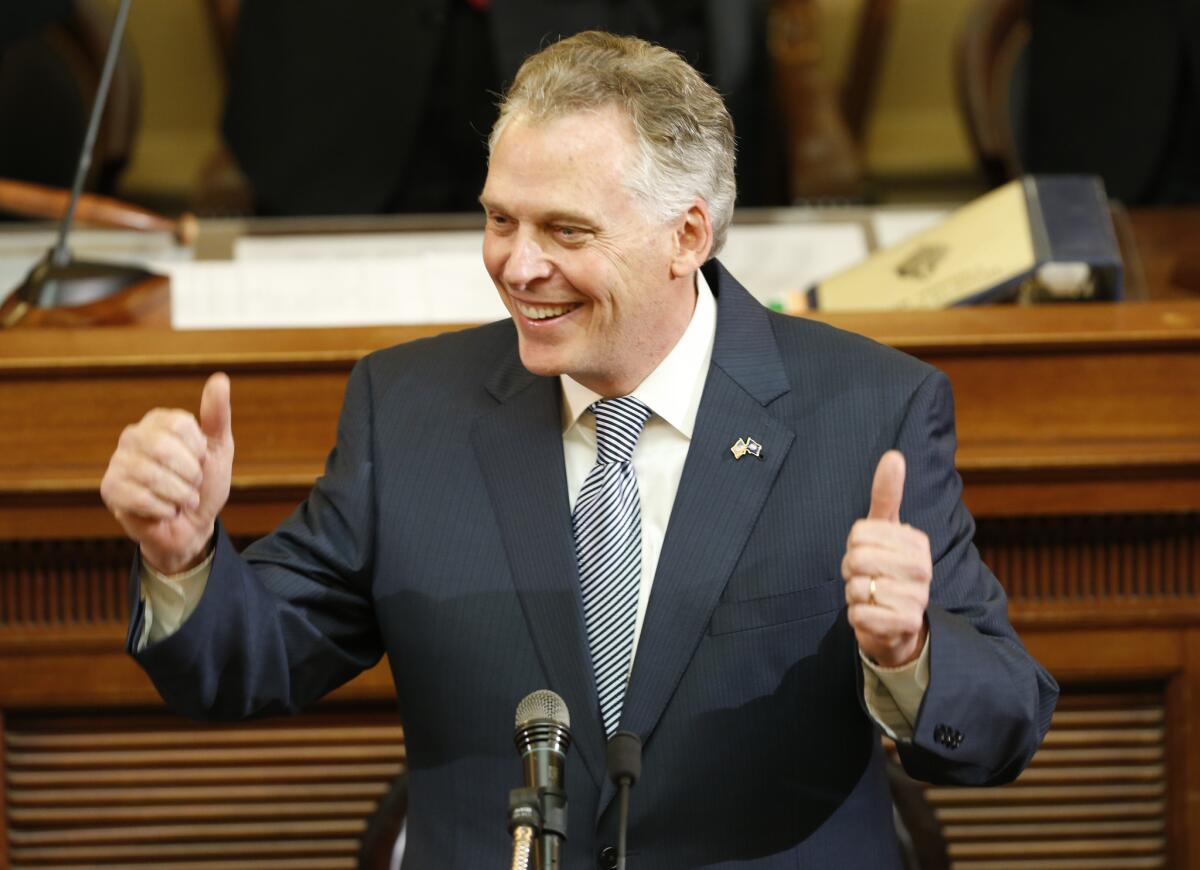Editorial: Restoring voting rights to Virginia ex-felons is a welcome move – but for a whiff of partisan politics

Virginia Gov. Terry McAuliffe gestures as he delivers his State of the Commonwealth Address in Richmond, Va on Jan. 13.
Some values are so ingrained in American society that we have developed cliches to describe them. We know immediately, for example, what it means to say a person “has done his time” or “has paid his debt to society”: That person was convicted of a crime, completed a prison sentence and returned home to restart life with a clean slate. The rights and privileges of full citizenship that may have been revoked while the sentence was carried out — the right to vote, for example — ought to be returned when the term is completed.
Isn’t it quite a coincidence, then, that most of the states that flout this American value by denying the vote to ex-inmates (unless they win a pardon from the governor or approval from a judge) just happen to be those same states that for much of their history denied or severely restricted voting rights to African Americans?
Virginia, for example. Until two years ago, a Virginian who had done his or her time still couldn’t vote without petitioning the governor and winning back the franchise. It was a racially discriminatory policy because black Virginians, like their counterparts in other states, are disproportionately charged with and imprisoned for crimes, and are therefore disproportionately disenfranchised, just like in the bad old days.
In 2014, Gov. Terry McAuliffe took the wise and welcome step of restoring the vote to designated nonserious offenders. But others still had to jump through hoops that don’t exists for most former inmates, including those in California.
So when McAuliffe followed up last week by granting clemency to Virginia’s more than 200,000 ex-felons, restoring their voting rights and sweeping away all those hoops, it was a good thing — right?
It would have been — were it not for the fact that it comes just when those voters might be needed to carry Virginia in the November presidential election for (the increasingly likely nominee) Hillary Clinton, who just happens to be a close friend of McAuliffe, who in turn just happened to have been national chairman of the Democratic Party, and just happened to have chaired Hillary Clinton’s 2008 presidential campaign and Bill Clinton’s 1996 presidential campaign.
The movement to restore voting rights for former inmates has long suffered from partisan political resistance from Republicans, who were too willing to accept the racial discrimination that comes with voting restrictions because it helped keep the lid on the turnout of African Americans, who are overwhelmingly Democratic voters. McAuliffe’s move plays that same partisan card from the other side of the table.
Follow the Opinion section on Twitter @latimesopinion and Facebook
More to Read
A cure for the common opinion
Get thought-provoking perspectives with our weekly newsletter.
You may occasionally receive promotional content from the Los Angeles Times.






